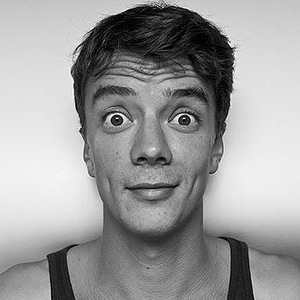Workshop
Fifty Shades of Shaders
An introduction to shaders for creative coders and code enthusiasts. Learn how to harness the power of your GPU to create awesome visuals realtime.
Shaders, are a powerful instrument in a creative coder’s toolbox. By giving access to the full power of the GPU they allow effects that would be impossible to achieve real-time otherwise. Shaders have been around for some time, however, they have gained more and more traction in the recent years within the creative coding community. VVVV, Touch Designer, Cinder and OpenFrameworks, to cite a few, now all support shaders to some extent. The latest release of Processing also offers an easy implementation of GLSL shaders through the PShader class, courtesy of Andreas Colubri. A look at www.shadertoy.com will give you an idea of what shaders can accomplish.
The workshop is open to all coders with no or little previous knowledge of shaders. Participants will learn the basics of working with GLSL shaders to generate 2D and 3D visuals in real-time. The workshop will start with a quick introduction to the theory behind shaders and will then focus on hands-on tinkering and experiments in code. Attendees will gain a practical understanding of shaders and the ability to integrate them easily in their own projects.






PRICE
Early Bird
Ends April 29th
83,00 euro
Regular Ticket
After April 29th
120,00 euro
WHEN
Thursday, 9th May 2013
WHERE
HTW - Hochschule für Technik und Wirtschaft, Wilhelminenhofstraße 75A - Berlin
TIME
10am-6pm
LANGUAGE
The workshop will be in english
WORKSHOP DURATION
8 Hours
Participant Requirements
- Basic programming knowledge (variables, functions, loops, types...)
- Ability and disk space to download and install additional software
- Processing 2.0b8(download it from: http://processing.org/)
- A laptop with a GPU supporting shaders (to check, go to shadertoy.com with a recent browser and run some of their shaders)
- Sublime Text, for editing shaders (available for unlimited trial at: www.sublimetext.com)
Participants Recommendations
- Some experience with the Processing IDE
- Create custom PShape with beginShape(), vertex(), endShape()
- Install contributed libraries
- Dealing with 3D coordinates
- A idea for a simple project using shaders
These are not hard requirements, but will help in really understanding what is going on, rather than just copying the code into your project.
TENTATIVE SCHEDULE
(subject to modification)
Morning:
1) Introduction: The roles of shaders in the OpenGL rendering pipeline
2) Hello shaders: build your first shader and understand the lingo (uniforms, varying, fragment, etc.)
3) Shaders in Processing: the new PShader object and shader() function.
4) GLSL for normal people: what were shaders made for? (hint: it has to do with rendering 3D)
5) GLSL for code gypsies: what else can we do with shaders? (filters, generative design, image blending...)
Afternoon:
Q&A + Hands on practice with coaches. Use your newfound shader knowledge to create interactive generative visuals.
PRICE
Early Bird
Ends April 29th
83,00 euro
Regular Ticket
After April 29th
120,00 euro
CERTIFICATE
You will receive a Workshop certificate of participation.
CANCELLATION/REFUND/TRANSFER POLICY
Tickets are non-refundable once purchased. If you cannot attend, your ticket may be transferred to another person or you may receive a credit with Codemotion for future events. Email your invoice number, along with existing attendee info and new attendee info to info@codemotionberlin.com
CONTACT
For further information please contact us here: info@codemotionberlin.com

























